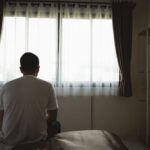It is normal to feel anxious from time to time. It happens to everyone. That feeling of unease, worry, fear, or nervousness might arise before an upcoming event, like an exam, a party, or speaking in public. But some people have feelings of anxiety that are excessive and occur frequently or constantly. They find it difficult to control their anxious feelings. When a person’s feelings are more intense and disruptive than everyday worry or nervousness, they may suffer from an anxiety disorder.
What are Anxiety Disorders?
Anxiety disorders are a group of mental health illnesses that cause individuals to experience overwhelming and excessive fear in response to routine situations. The feelings of danger and fear make the person feel like things are worse than they really are and can go on long after any perceived threat is gone. Excessive worry and anxiety can make a person miss school or work, stay away from family get-togethers, and avoid social situations with friends.
Types of Anxiety Disorders
Generalized Anxiety Disorder
Generalized anxiety disorder involves excessive and persistent worry, fear, tension, or paranoia that affects the individual’s everyday activities. Often along with the relentless feelings of general anxiety disorder, the person has physical symptoms, such as difficulty concentrating, restlessness, muscle tension, feeling on edge, difficulty sleeping, and fatigue. The cause of the anxious feelings is often everyday things such as work or school responsibilities, household chores, appointments, minor family health matters, or car repairs. Sometimes, the anxiety attack is not connected to a specific trigger.
Panic Disorder
When a person’s body experiences a strong rush of intense physical and psychological symptoms, they are experiencing a panic attack. Their sense of apprehension, fear, and anxiety is typically overwhelming and often is accompanied by physical symptoms such as a rapid heartbeat, dizziness, shakiness, and disorientation. The main symptom of panic disorder is frequently recurring panic attacks.
Panic attack symptoms can become so severe that people think they are having a heart attack or another major health event. The individual may have chest pains, chills, or hot flashes. They may be trembling, shaking, or sweating. Often they feel detached and have a fear of losing control. They may have abdominal pains and be nauseous or feel like they are choking.
Panic attacks can occur for no apparent reason or in response to something feared.
Social Anxiety Disorder
An individual with a social anxiety disorder feels self-conscious and unsafe in everyday social situations. They have a lot of discomfort and anxiety in social interactions because they fear being judged, humiliated, embarrassed, looked down on, ridiculed, or rejected. They usually suffer through a situation with great anxiety or try to avoid it completely. Several examples are extreme fear of meeting new people, public speaking, or drinking or eating in public.
Obsessive-Compulsive Disorder (OCD)
People with obsessive-compulsive disorder carry out repetitive behaviors called compulsions and/or have unwanted recurring thoughts called obsessions. Often an individual repeats a behavior such as counting, checking, hand washing, and cleaning while hoping their actions will prevent or stop their obsessive thoughts. However, the person only gets temporary relief from performing their rituals. If they do not do their routines, their anxiety increases.
Agoraphobia
When a person has agoraphobia, they have anxiety and an irrational fear of being in a place where they feel it is difficult to get help or escape from if there were to be an emergency. For example, they may feel anxious and panicky on an airplane, train, subway, or other forms of public transportation. They may also feel the same way standing in a crowded line or entering a crowded place.
Phobia Disorder
When a person has a phobia of a specific situation, activity, or object, they feel an intense fear when faced with their trigger. For example, if they have a fear of flying or clowns, they will experience intense fear or anxiety when faced with flying or seeing a clown. Phobia disorders cause people to avoid places and situations where they may encounter specific triggers.
Anxiety Disorders and Addiction
When a person suffers from an anxiety disorder and has an addiction to drugs or alcohol, they have a co-occurring disorder. In one study, most people diagnosed with a substance use disorder and an anxiety disorder used drugs or drank alcohol to relieve the symptoms of their mental health condition. By using substances to self-medicate, they became addicted to their substance of choice. Studies indicate that approximately 10 to 20 percent of people with anxiety disorders abuse drugs or alcohol.
Do You Need Help?
If you or a loved one struggles with a substance use disorder or a co-occurring disorder, help is available. Call and speak to a caring professional at Canyon Vista Recovery Center, located in Mesa, Arizona. We use a combination of medical, psychiatrics, holistic, and clinical approaches to help you achieve lasting sobriety.





